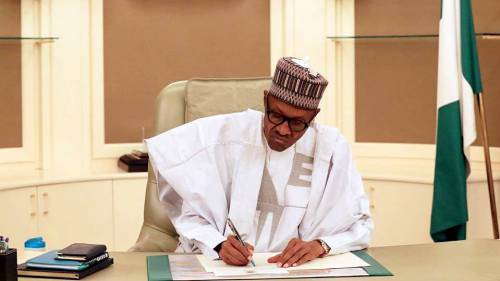
On the first day of 2018, as it is with every new year, the temptation is to dream big — to fantasise about sudden turnarounds of poverty to wealth, sadness to happiness, suffering to delirium.
It’s a time when self-appointed men of God, latching on to the propensity of the people to romanticise the future, declare all good and no bad on the nation. This is a clear-cut warning: as far as expectations of a people from the government go, 2018 will be a worse year than 2017 — possibly the worst in recent years. The government has done enough in 2017 to offer us a glimpse of what to expect in 2018. There will be no surprises. No one needs to be clairvoyant to see this.
Government is a continuum not just in terms of faithfulness to policies in the face of changing governing personnel, but also in the performance of a government from year to year. Technically, the only New Year’s Day in the life of any government is its ascension to power or its consolidation (in the form of re-election). Therefore, expect this government to begin the 2018 exactly, if not worse than, the way it ended 2017. And how did the Muhammadu Buhari administration end 2017? Scandalously!
This government saved arguably the biggest embarrassment of its tenure for the last days of the year, naming eight dead people among the 1,457 appointed to the boards of scores of government and public institutions. Not only that, some names were duplicated on the list, while the government still managed to name four to the board of the National Iron Ore Mining Company (NIOMCO), Itakpe, Kogi State — a company it privatised through concession back in 2016! This was an appointment that should have been made in 2015; two years on, it was still bungled. Therefore, in 2018, don’t expect a government that is suddenly tidy; it will continue to be tardy in the execution of the people’s mandate.
In 2018, expect a government that doesn’t take responsibility — so long we have a Garba Shehu who defends the ‘ghost appointments’ by saying; “There is nothing scandalous or extraordinary about what has happened. This list is a historical list. It dates back to 2015.” His current statement is an inkling of future statements. So, expect, in 2018, a government that blames the country’s problems on everyone else but itself.
In 2018, expect more job losses. This is no doomsday prophecy. In any case, I haven’t said anything new. According to the National Bureau of Statistics (NBS), The unemployment rate, induced by a recession, typically peaks about 15 to 18 months after the beginning of a recession or four to eight months after the end of a recession before it returns to its pre-recession trend.” It was in September 2017 that Nigeria officially exited the economic recession it entered in August 2016. “Four to eight months” from September spills into 2018; the job cuts that accompanied the recession won’t suddenly disappear on January 1, 2018.
A change of dates doesn’t automatically spell the end of the ongoing fuel scarcity. Both government and the marketers have been coy about the hard decisions that have to be taken. It is either pump price of fuel is raised to at least N171/litre or government pays a subsidy of roughly N26/litre to retain the current price. But as it stands, government doesn’t want to pay subsidy on petrol, and marketers are averse to importing for sale at N145/litre. NNPC typically imports only 20% of the country’s petrol consumption; there’s no chance it can suddenly cope with the burden of sole importation. How wrong therefore, it is to misconstrue the current fuel shortage for a Yuletide affair! Unless the outstanding questions are answered, it’s new year, renewed fuel crisis!
Finally, expect a year when the wheels of governance grind at the very slowest. It’s election year! In his first year in office, Buhari waited six months before appointing his ministers. That delay still hurts his administration till date, as it left investors scared of Nigeria and engaging in guesswork about the policy directions of the country, and is partly to blame for the fuel scarcity of September to December 2015. This year, with a grueling electioneering to come, expect a litany of delayed appointments. Expect the budget to suffer its worst implementation level since Buhari’s ascendancy to power. The 21 percent implementation of the capital component of the 2017 budget is the lowest in five years; no one needs a soothsayer to know that the ignominious record will be shattered in 2018. The executive will be too busy seeking re-election to oversee substantial budget implementation.
How many important events happened in 2017 that Buhari was unaware of? Abdulrasheed Maina’s recall, the Ibe Kachikwu-Maikanti Baru feud, the fuel scarcity? Expect many more in 2018, because his health will be stretched by the hectic campaign schedule, and you can be sure that governance — not the campaign — will be the sacrificial lamb.
In short, the masses will not experience significant upgrade in the standard of living this new year. Instead, it will plummet. But the good news — the only one in a gloomy 2018 outlook of the country — is that the socioeconomic advancement of the people is not wholly in the care of government. There will be individual success stories. Nigerians must know, in 2018, that they can succeed in spite of the underwhelming federal leadership. To continue hoping against hope for the hurriedly-promised change is to set oneself up for heartbreak at the end of the new year. In 2018, Nigerians can succeed — but they will have to do it without their government!
Soyombo, Editor of the International Centre for Investigative Reporting (ICIR), tweets @fisayosoyombo
END

Be the first to comment